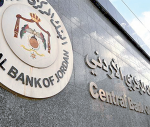You are here
Jordan to resume import of Iraqi crude oil this week — Zawati
By JT - Jul 08,2020 - Last updated at Jul 08,2020
AMMAN — The Kingdom will resume importing Iraqi crude oil within the next two days, Energy Minister Hala Zawati announced on Tuesday.
Iraq had suspended oil exports to Jordan after oil prices dropped to less than $20 per barrel.
Zawati said that negotiations with Iraq during the last period have been “positive”, which led to the resumption of Iraqi crude oil imports to the Kingdom, the Jordan News Agency, Petra, reported.
In 2006, Amman and Baghdad signed a memorandum of understanding (MoU), under which Jordan would import Iraqi crude oil daily with a discount of $18 from the price of Brent crude per barrel, provided that the Kingdom bears the cost of transport between Kirkuk and Zarqa.
A new memo was signed in 2019 that resembled the old agreement but dropped the discount from $18 to $16.
Under the new MoU, Jordan imports 10,000 barrels of Iraqi crude oil daily with a discount of $16 from the price of Brent crude per barrel to cover the difference of transport costs and deviations in standards.
Iraqi oil, exported from Baiji in Iraq to the Jordan Petroleum Refinery Company, covers 7 per cent of the Kingdom’s daily demand.
The total volume of Iraqi crude oil received by the Kingdom since the launch of shipments in September 2019 up until the end of April 2020 totalled 2.44 million barrels, at a rate of 10,000 barrels a day.
Also on Tuesday, Zawati, speaking during a joint press briefing with Minister of State for Media Affairs Amjad Adaileh and Health Minister Saad Jaber, announced the comprehensive energy strategy for 2020-2030, stressing that the key goal of the plan is energy security.
The strategy focuses on increasing self-reliance and sustainability and verifying sources and types of energy.
"No supply disruption" was reported during the COVID-19 crisis, "thanks to the Kingdom’s reliance on more than one source", she said, highlighting efforts to develop the Kingdom’s energy sector to become a regional hub.
The new strategy will reduce energy costs for local consumers, Zawati noted, highlighting that 21 per cent of electricity will be generated from renewable sources and that the strategy aims at reducing imported energy.
She also announced the adoption of smart metres by the end of 2022, noting that the ministry will work on the renovation of the Hamzeh oil field over the next six months.
The production at the Risha field has been increased to 17 cubic metres, she said.
She added that in 2030, dependence on natural gas for issues related to electricity generation will decrease by 53 per cent.
Related Articles
AMMAN — Jordan imported a total of 262,000 barrels of Iraqi crude oil in October at an average of 8,448 barrels per day, the Ministry of Ene
AMMAN — Jordan will receive Iraqi oil with a discount of $16 from the price of Brent crude per barrel, to cover the difference of transport
AMMAN — Jordan imported a total of 204,000 barrels of Iraqi oil during September as per the deal the two countries inked in February, Energy
















